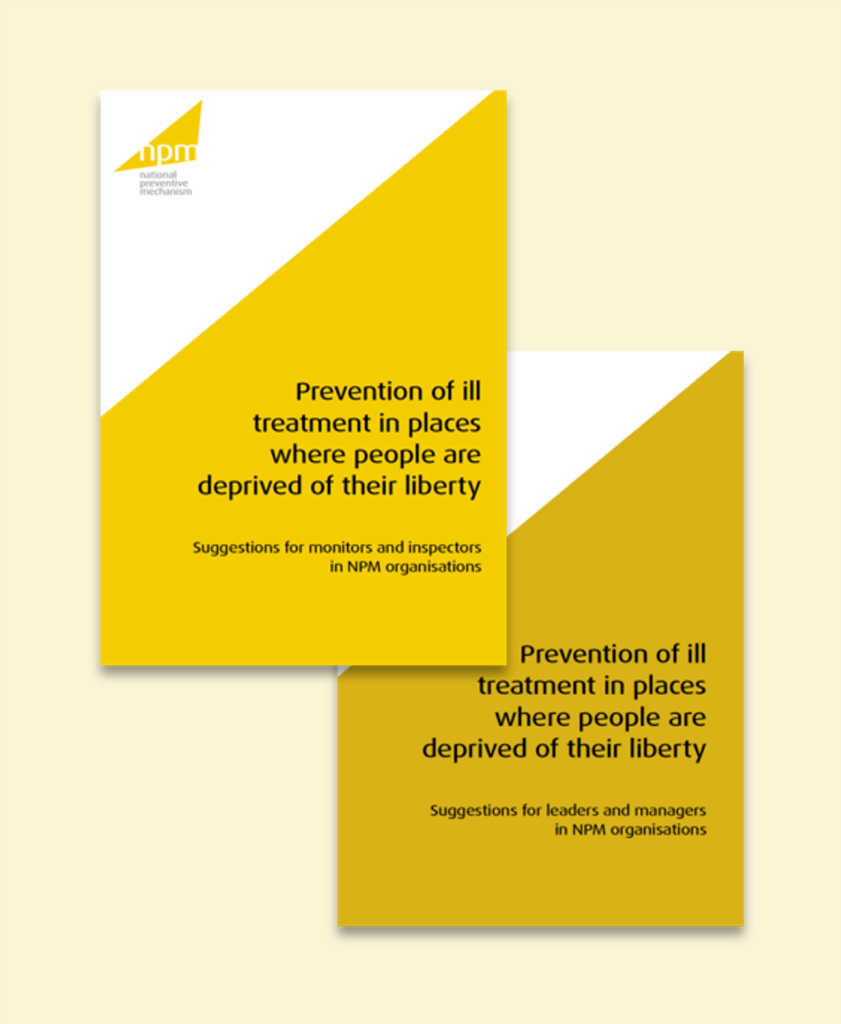Blog: Preventing ill treatment in detention – practical suggestions for monitors and managers
Last month, the UK National Preventive Mechanism published two new guidance documents outlining key skills and approaches to inspections and monitoring visits for those working in detention scrutiny. The first guidance document is written for leaders and managers, and the second provides guidance to inspectors and monitors.

External scrutiny, through regular visits of monitors and inspectors, is a crucial safeguard when it comes to preventing ill treatment of people who are detained. Places of detention are complex environments in which the ‘fresh air’ of ongoing public scrutiny is often limited. They are also places where there is a significant power imbalance between those who are detained and those charged with looking after them. People who are detained are also often vulnerable for multiple other, sometimes intersecting, reasons, such as physical ill health, drug addiction, mental health issues, neurodiversity, prior experience of trauma.
At the same time, ill treatment can encompass a broad range of issues such as material living conditions, access to meaningful activity, the actions of others (most notably staff) towards detained people, the use of restrictive practices, contact with the outside world and the lack of access to legal safeguards.
These two new guidance documents can help scrutiny practitioners to reflect on important questions during inspections and visits, such as:
- How can visits be undertaken in a way that facilitates the development of detention environments such that ill treatment is less likely to happen?
- Ill treatment is less likely to take place in front of monitors or inspectors, so what should they be looking for to help understand the detention environment and the risks it might pose to those held within it?
- How can visits be used as an early warning/detection mechanism for potential abuse?
The guidance for leaders and managers explores strategies for putting the dignity, worth and human rights of those who are detained at the heart of organisational missions and strategies. This can inform their recruitment of staff and volunteers, mindful of the skills needed to take a holistic approach to inspection and monitoring. It encourages training and support for staff in taking such a holistic approach when visiting places of detention. Monitors and inspectors need time and space to raise issues that concern them and should not be constrained by organisational processes or an overly mechanistic approach.
The guidance for monitors and inspectors offers practical suggestions and guidance to those undertaking visits to places of detention, to help make rounded assessments of detention environments. For example, the guidance highlights the importance of focussing on areas where the risk of ill treatment is heightened, including:
- organisational culture (or sub-cultures) within the detaining institution, which can influence behaviour that infringes the dignity of those who are detained
- moments in the detention ‘journey’ where people might be more vulnerable to ill treatment, such as at the point of being apprehended, on being transferred between detention settings, or on being deported or removed from the country
- practices where the risk of ill treatment is heightened, such as when people are searched, where there is use of force, restraint or seclusion/isolation, and when sanctions or disciplinary measures are used
- where people have particular issues that make them vulnerable
There are no easy answers to how to monitor detention settings to make ill treatment less likely. Doing so requires vision, leadership, courage, tenacity and curiosity – attributes we have clearly observed in those inspectors and monitors we met in the course of this work.
The guidance documents can be found at the links below:
- Guidance for leaders and managers: Prevention of ill treatment in places where people are deprived of their liberty
- Guidance for monitors and inspectors: Prevention of ill treatment in places where people are deprived of their liberty.
The recording of the webinar launching the new guidance is also available to watch online.
Sarah Cooke OBE and Professor Rachel Murray consulted on the development of the two new guidance documents. Sarah is a lawyer and consultant specialising in human rights, mental health and social care, detention settings and strategic organisational development. She is also a judge on the Mental Health Tribunal. Rachel is a Professor of International Human Rights Law at the University of Bristol and Director of its Human Rights Implementation Centre.
